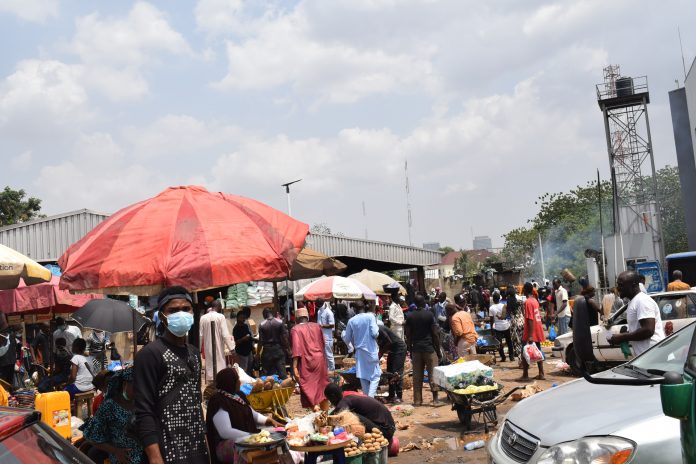Under the current global shock of COVID-19, African leaders are taking decisive actions to mitigate the impact of the global pandemic on their economies.
Below are measures taken by many African government:
Nigeria -All CBN intervention facilities are hereby granted a further moratorium of one year on all principal repayments, effective March 1, 2020.
Interest rate reduction from 9 to 5 percent per annum for 1 year effective March 1, 2020.
Creation of a N50 Billion targeted credits facility to households and SMEs;
Credit support for healthcare industry
Regulatory forbearance: All deposit money banks leave to consider temporal and time-limited restructuring of the tenor and loan terms for businesses and households most affected
CBN would further support industry funding levels to maintain DMBs’ capacity to direct credit to individuals, households and businesses.
Madagascar- Banky Foiben’I Madagasikara (BFM) announced:
• Support economic activities by providing banks with the
necessary liquidity to finance the economy;
• Has injected $111 million beginning of March and will
re-inject $53 million at the end of March 2020;
• Maintain the availability of foreign currencies on
interbank market;
• Discuss with banks and financial institutions the impact of
the crisis and provide the necessary responses.
Mauritius -The Bank of Mauritius five responses to keep credit flowing to the economy:
• Decreased the Key Repo Rate (KRR) by 50 basis points to
2.85 per cent per annum.
• a Special Relief Amount of Rs 5.0 Billion through
commercial banks to meet cash flow and working capital
requirements The central bank cut its cash reserve ratio by
a percentage point to 8%;
• Released $130 million to fund businesses struggling with
the impact of the virus;
• Instructed banks to suspend capital repayments on loans
for affected businesses;
• Eased supervisory guidelines on handling credit impairments; and issued a “savings bond.
Morocco Bank- Al-Maghrib announced the implementation of the integrated business support and financing program 20, the fluctuation dirham from ± 2.5% to ± 5% and decided to reduce the interest rate by 25 percentage points base at 2% and continue to monitor all of these developments very closely.
Exemption of Enterprises from paying contribution to the pension fund (CNSS) and debt moratorium as part of measures to offset economic impact of Covid19; $1bn to upgrade health infrastructure and assist affected sectors
Hassan II Fund and regions to allocate $261m to address the impact.
Rwanda- The Central Bank announced:
• Lending facility of around $52 million to commercial banks;
• Lowering reserve requirement ratio effective April 1 from 5% to 4% to allow banks more liquidity to support affected businesses.
• Allowing commercial banks to restructure outstanding loans of borrowers facing temporary cash flow challenges arising from the pandemic.
Seychelle- The Central Bank of Seychelles (CBS) has announced
• foreign exchange reserve will only be used to procure three items – fuel, basic food commodities and medicines
• cut the Monetary Policy Rate (MPR) to four per cent from five per cent
• A credit facility of approximately $36 million will be set up to assist commercial banks with emergency relief measures.
Sierra Leone -Central Bank of Sierra Leone
• Lower the Monetary Policy Rate by 150 basis points from 16.5 percent to 15 percent.
• Create a Le500 Billion Special Credit Facility to Finance the Production,
Procurement and Distribution of Essential Goods and Services.
• provide foreign exchange resources to ensure the importation of essential commodities. The list of commodities that qualify for this support will be published in due course.
• Liquidity Support to the Banking Sector.
South Africa South African Reserve Bank cut interest rate from 6.25% to 5.25%
The government announced a plan $56.27m to support small businesses during the outbreak
Tunisia- Central Bank of Tunisia decided to:
• Provide banks with the necessary liquidity to enable them to continue their normal operations,
• Carry-over of credits (principal and interest) due during the period from the 1st March until the end of September 2020. This measure concerns the professional credits granted to customers classified 0 and 1, who request it from banks and establishments financial.
• The possibility of granting new funding to beneficiaries of the deferral of deadlines.
• the calculation and requirements of the credit / deposit ratio will be more flexible.
Uganda- Bank of Uganda:
• Intervene in the foreign exchange market to smoothen out excess volatility arising from the global financial markets;
• Put in a place a mechanism to minimize the like hood of sound business going into insolvency due to lack of credit;
• Provide exceptional liguity assistance for a period of up to one year to financial institutions supervised by BoU that may require it;
• Waive limitations on restructuring of credit facilities at financial institutions that may be at risk of going distress
Zambia- Bank of Zambia decided to increase the limit on agents and corporate wallets:
Individuals Tier 1 from 10000 to 20000 per day (K) and maximum 100,000
Individuals Tier 2 from 20,000 to 100,000 per day (k) and maximum 500,000
SMEs and farmers from 250,000 to 1,000,000 per day (K) and maximum 1,000,000
Reduce interbank payment and settlement system (ZIPSS) processing fees.

























